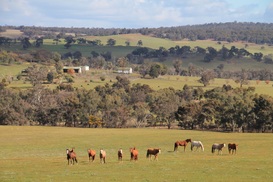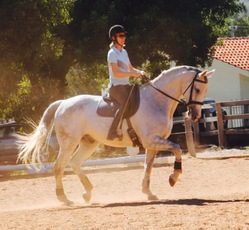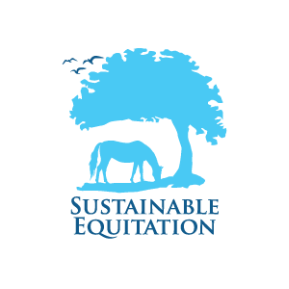
I was thinking today about the concept of obedience and how, in our society, the word has acquired some negative connotations. Without contemplation I wouldn't want to have been described as obedient, nor would I have felt pride as a parent if my children were described as obedient. I think the term has become synonymous with subservience and submission and that there is an unspoken suggestion that compliance has been achieved through coercion. Yet, I have to say that most of us are obedient when we consider the word in its true sense. We don't slap people who annoy us, we pay for things and we drive on the left side of the road. My children don't steal the lunches of other kids or hit their teachers or kick the dog. Most of us are obedient to the rules that govern the country in which we live. Generally speaking, when people break those rules it's because they are unhappy or disenfranchised or desperate. It may sound disingenuous, but losses of obedience rarely lead to happiness.
This of course does not mean that we cannot question the world in which we live or the way in which it is being run. Obedience should not entail censorship. As adults it's ok if we just don't break the rules. Obedience should not mean that we are controlled by another adult. Or punished. Or threatened. The rules that govern society function to enable everyone to live in relative peace and safety. The kind of bullying that is at work when one person oppresses another, usually functions to maintain an already skewed balance of power. That's the kind of tyranny and oppression is the symptom of a disease that is endemic in our society.
This of course does not mean that we cannot question the world in which we live or the way in which it is being run. Obedience should not entail censorship. As adults it's ok if we just don't break the rules. Obedience should not mean that we are controlled by another adult. Or punished. Or threatened. The rules that govern society function to enable everyone to live in relative peace and safety. The kind of bullying that is at work when one person oppresses another, usually functions to maintain an already skewed balance of power. That's the kind of tyranny and oppression is the symptom of a disease that is endemic in our society.

So, we could say that obedience is when we know the rules that govern the country where we live and we mostly stick to them because they're clear, they apply across the board and the consequence of non-compliance is aversive in some way. When one person (let's say a spouse), an organisation (let's say a church) or a social structure (let's say gender) dictates how another person should behave or what to think, when those rules don't necessarily apply to everyone – that's oppression.
When we train dogs and horses we often really struggle with the notion of obedience because of the inextricable linguistic connection between obedience and oppression. That's why, I believe, people often leave a little wriggle room in their interpretation of the rules that they set for appropriate behaviour, because most of us would really hate to be seen as tyrannical or oppressive in the way relate to our animals.
Herein lies the problem. The rules that govern society are very clear and rarely change. It's not ok to steal food, even if you're hungry. It's not ok to steal a car if yours breaks down and you need to get to work. It's not ok to drive at 140km per hour in a 60km zone. These rules have no wriggle room, no negotiation. Part of the security that we have when we function as members of a community occurs because we are clear what the rules are. We may occasionally feel constrained or annoyed but overall rules are a good thing because they give us stability and a degree of protection.
The foundation responses that we train in our horses (go, stop, turn shoulders, yield hindquarters and park) and dogs (sit, stay, heel) can work in the same ways as the rules that govern our society. They can serve to provide a safe and consistent environment for the animal. They provide consistency and stability. But they must be really clear and maintained constantly – there should be no lapses or gaps. The foundation responses are always the same and they never change. Imagine how frightening it would be if sometimes when you were driving a 'stop' sign meant stop and sometimes it meant drive straight through. If the consequence of making the wrong choice was some form of punishment, it would be even more scary. Yet this is the sort of situation that lots of horses face every day. If the reins mean stop, pressure on the reins must always slow the tempo of the legs. Yet sometimes in certain training systems it means lower your head and sometimes it means just keep going and ignore the pressure. It's a case of the rules not being maintained all the time.
I think one of the biggest contributions that Andrew McLean has made to equitation science (amongst many really significant contributions) is to unequivocally state that horses that are not clear in their basic or foundation responses have compromised welfare. If there are rules, the rules must always be the same. Just like the rules that govern society they should be objective, measurable and able to be replicated. That's one of the reasons why we train horses to travel straight when ridden or lead – because degrees of crookedness are too hard to replicate, over and over. We need the behaviours we train to be the same all the time.
The exegesis of my PhD looked at trauma and learned helplessness in war veterans. For that I defined trauma as a loss of contingency or a loss of control. Rule changes can be very problematic for humans even though we have a great big prefrontal cortex with which to ponder and meditate inconsistency. So for horses and dogs, without this structure, random rule changing can be very problematic indeed. When the rules stay the same the world is stable and predictable. Losses of predictability (or of contingency) are not only stressful, if significant they can be traumatic.
So what does this mean for us as trainers? It means that, ethically, we have a responsibility to train clear, reliable responses in our horses and dogs and to prioritise the maintenance of those responses because when they fail the result is not just poor training outcomes but compromised welfare.
PJ
When we train dogs and horses we often really struggle with the notion of obedience because of the inextricable linguistic connection between obedience and oppression. That's why, I believe, people often leave a little wriggle room in their interpretation of the rules that they set for appropriate behaviour, because most of us would really hate to be seen as tyrannical or oppressive in the way relate to our animals.
Herein lies the problem. The rules that govern society are very clear and rarely change. It's not ok to steal food, even if you're hungry. It's not ok to steal a car if yours breaks down and you need to get to work. It's not ok to drive at 140km per hour in a 60km zone. These rules have no wriggle room, no negotiation. Part of the security that we have when we function as members of a community occurs because we are clear what the rules are. We may occasionally feel constrained or annoyed but overall rules are a good thing because they give us stability and a degree of protection.
The foundation responses that we train in our horses (go, stop, turn shoulders, yield hindquarters and park) and dogs (sit, stay, heel) can work in the same ways as the rules that govern our society. They can serve to provide a safe and consistent environment for the animal. They provide consistency and stability. But they must be really clear and maintained constantly – there should be no lapses or gaps. The foundation responses are always the same and they never change. Imagine how frightening it would be if sometimes when you were driving a 'stop' sign meant stop and sometimes it meant drive straight through. If the consequence of making the wrong choice was some form of punishment, it would be even more scary. Yet this is the sort of situation that lots of horses face every day. If the reins mean stop, pressure on the reins must always slow the tempo of the legs. Yet sometimes in certain training systems it means lower your head and sometimes it means just keep going and ignore the pressure. It's a case of the rules not being maintained all the time.
I think one of the biggest contributions that Andrew McLean has made to equitation science (amongst many really significant contributions) is to unequivocally state that horses that are not clear in their basic or foundation responses have compromised welfare. If there are rules, the rules must always be the same. Just like the rules that govern society they should be objective, measurable and able to be replicated. That's one of the reasons why we train horses to travel straight when ridden or lead – because degrees of crookedness are too hard to replicate, over and over. We need the behaviours we train to be the same all the time.
The exegesis of my PhD looked at trauma and learned helplessness in war veterans. For that I defined trauma as a loss of contingency or a loss of control. Rule changes can be very problematic for humans even though we have a great big prefrontal cortex with which to ponder and meditate inconsistency. So for horses and dogs, without this structure, random rule changing can be very problematic indeed. When the rules stay the same the world is stable and predictable. Losses of predictability (or of contingency) are not only stressful, if significant they can be traumatic.
So what does this mean for us as trainers? It means that, ethically, we have a responsibility to train clear, reliable responses in our horses and dogs and to prioritise the maintenance of those responses because when they fail the result is not just poor training outcomes but compromised welfare.
PJ

 RSS Feed
RSS Feed
